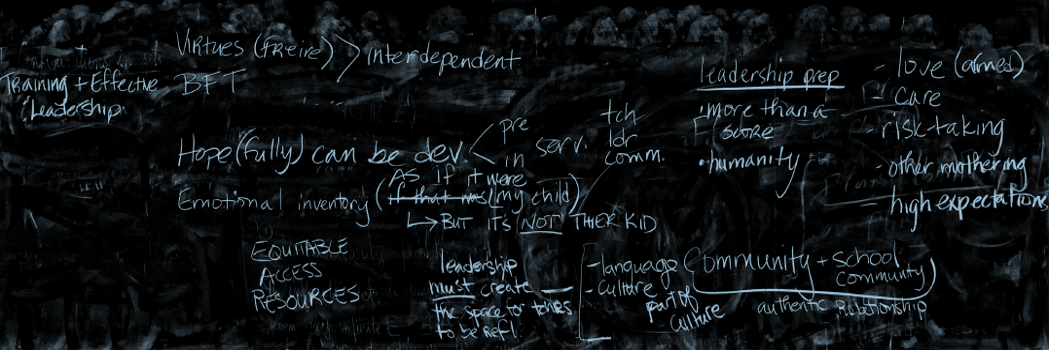Rivera-McCutchin (2020) highlighted the fundamental shift that needs to occur in order for any call to action to be transformative and that is a commitment to social justice and anti-racism. Principal Johnson did not retreat in the face of racial and political injustice instead, he acknowledged the deleterious effects of police brutality on the psyche of black and brown children by planning conferences and organizing walk-outs (Rivera-McCutchen, 2020). Similarly, By Principal Johnson greeting students in the morning and humanizing their existence by asking about their family members and calling students by their names, he built a welcoming environment that took away front the notion that students are “just numbers/statistics” in his school showcasing what is referred to as “Authentic Care” (Rivera-McCutchen, 2020). I was also impressed by Principal Johnson’s relationship with his staff. Creating a work environment that exercises authentic care is equally as important. As the survey indicated, teachers felt cared for, safe, and respected and it is that transference of energy that was cultivated in the weekly community circles (Rivera-McCuthen, 2020). Lastly, it was Principal Johnson’s intolerance and/or disbelief in mediocrity, authentic care, and commitment to social justice that pushed the school to function in optimal capacity so why is this so hard to infuse in our public school system at all levels? Why is it so difficult to infuse frameworks that work in our teacher education and school leadership programs? The reading and the aforementioned questions also have me wondering why questions of radical care are not included in our teacher certification exams?
Radical Care Sp21
Teaching & Leading for Justice in Schools




Fatima,
All great questions. I know very little about the certification exams but I imagine that it might have something to do with the structural limitations of standardized testing. What would it take to have radical care on a certification exam from a “theory building” and “instrument validation” perspective? This is not to affirm the status quo but merely to suggest that there are some ideological, epistemological, and ontological questions embedded in this discussion.
Overall, I felt like the emphasis on the workplace culture that emerged under the radial care framework in this case study was really inspirational. People are notoriously terrible at creating human centered environments generally speaking but I think that we’re a little better at thinking about how to create better spaces for children than we are at thinking about how to do the same for adults. With that being said, in a school it’s easy to have attention paid disproportionately to the experiences of the children but that’s wildly unsustainable, particularly because teaching is so emotionally laborious. Nurturing and caring for staff is what keeps the operation afloat!